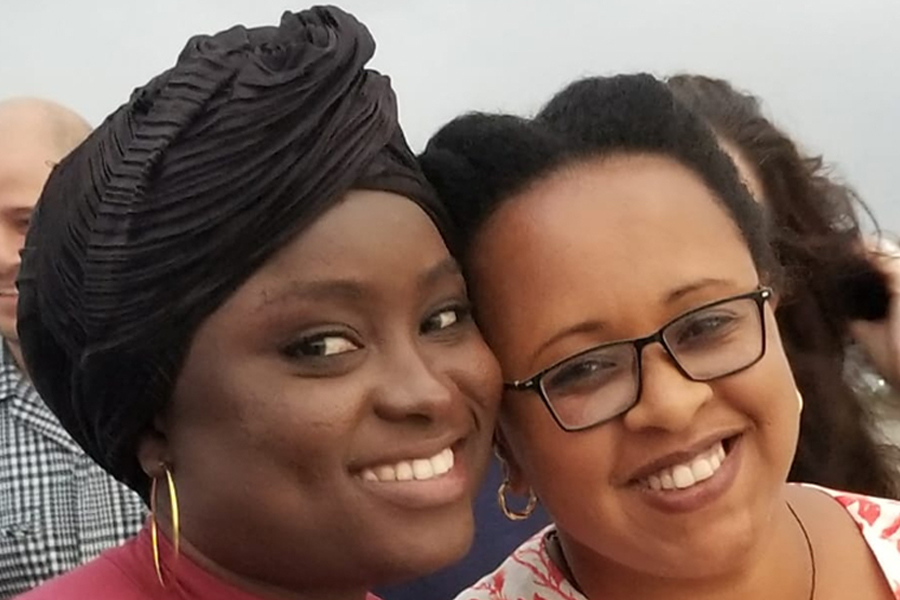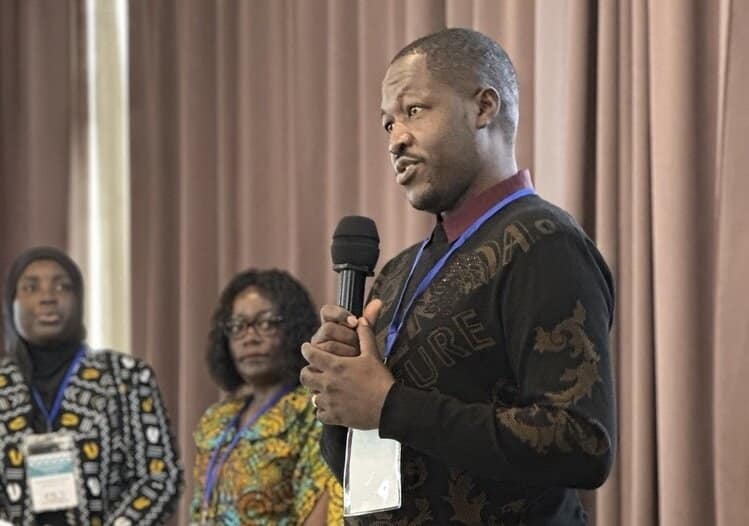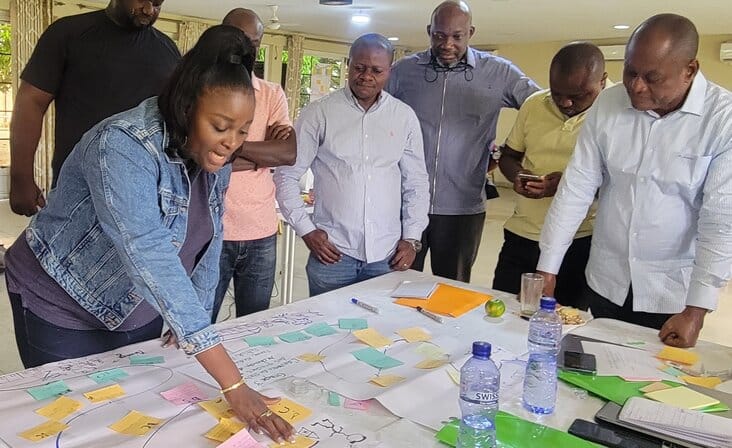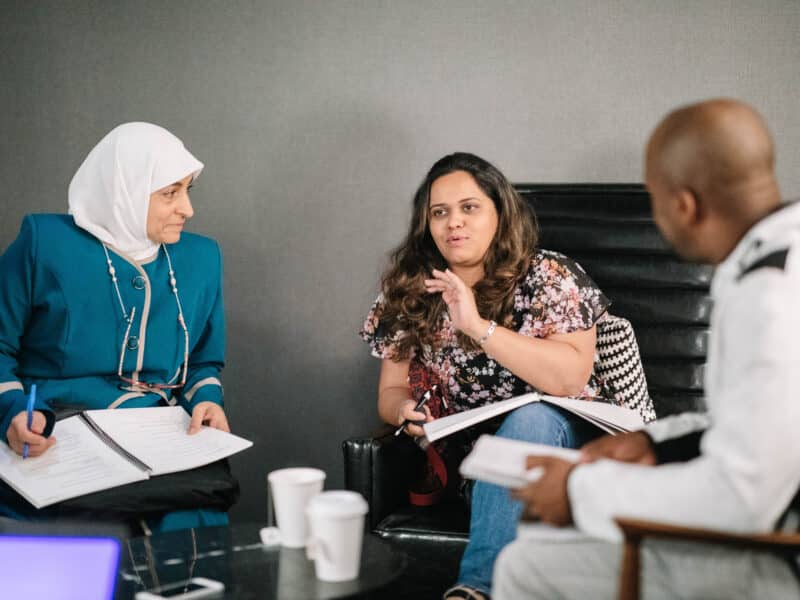
The course is constantly evolving to acknowledge the real-time, dynamic nature of the strategic process as well as new technologies and the constantly changing nature of communication, social norms and individual behavior and decision making. Today, the process draws from many other disciplines, including design theory, behavioral economics, social psychology and anthropology.
The three-week workshop, to be held from July 1 to July 19 in Baltimore, Maryland, this year, is led by a distinguished faculty of public health, policy and development experts and encourages deep, transformative self-reflection and listening. Applications are now open for this year’s cohort.
We recently got in touch with several alumni to discuss their experience at the workshop.
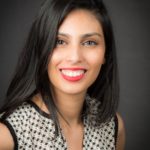
Myra Khan is head of communications at Interactive Research & Development (IRD), a global health delivery and research organization based in Pakistan.
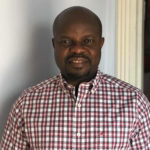
Thomas Ofem is a senior technical advisor for CCP’s One Community project in Malawi.
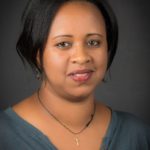
Bethelehem Asegedew is a communication officer at CORE Group Polio Project based in Ethiopia.
If you are interested in learning more about the workshop or if you have questions you’d like to ask the organizers and/or alumni, please join our Springboard discussion on Thursday, February 28 at 9 a.m. EST.
CCP: Tell us about your experience at the workshop. When did you participate and what were some of the most important lessons the workshop taught you about strategic communication and how to be an effective leader?
Myra: I participated in June 2018. The workshop is an exceptional experience that brings in thought leaders from diverse experiences all over the world. Guest speakers brought perspectives from different industries to give a multi-disciplinary perspective. Discussions were carefully curated and thought provoking. The exercises were designed to push us out of our comfort zones.
Thomas: I was a member of the class of 2003! Wow, 15 years ago! Seems like another lifetime, but recall vividly the vibrancy of that class, and the flow of the training from thinking through a problem with your team, through exploring potential strategies to solve that problem, and finally implementing and measuring the impact of these strategies. My most memorable lesson was that asking why there is a difference between our current situation and the future we seek is key to being an effective leader as well as being a strategic communicator.
Bethelehem: I am the batch of [alumni] from 2018. This was the best workshop I have ever attended. The most important and enduring lessons that I got from this workshop is that “communication is all about humanity,” “change starts from self,” “we need to stop doing what doesn’t work,” “there is no limit for knowledge,” [just to name a] few. To be an effective leader: have a vision; be a strategic thinker; be a great communicator; be flexible; think outside of the box; and take risks.
CCP: How would you say the workshop changed you, professionally and personally?
Myra: I now have much better understanding of different disease areas, monitoring and evaluation design and feel most comfortable trying new ideas. Personally, I feel more confident, empowered and energized.
Thomas: I owe my career to that workshop and my career is intertwined with my person. The [workshop’s planning process, the P-Process,] was my first exposure to a strategic planning framework and while I have been exposed to and used many other frameworks over the course of my work, the P-Process is indelibly etched somewhere in my consciousness.
Bethelehem: This workshop gave me a brand-new outlook on my professional as well as personal life, which will remain a high point in my life. After the workshop, I felt energized and eager to use the tools and strategies to be creative and innovative. Personally, it positively changed the way I look at people and I got something more on how to make and keep friends.
CCP: Were there specific facilitators and/or fellow participants that you really connected with?
Myra: The workshop was filled with incredible women that brought diverse experiences to the table. We were able to connect and support each other in both a professional and personal capacity. Everyone at the workshop wanted each other to succeed, be happy and grow. We learned from each other’s experiences.
Thomas: I did connect with Ben Lozare. His passion for change infected me … I also connected with Robert C., a course mate from Malawi. Robert was one of the quieter ones in the class, a great listener in who one of the workshop slogans, “Listen to Learn; Learn to Listen,” was personified. Robert and I reconnected in Malawi in 2012 when I arrived here to work for CCP and we have since become close family friends.
Bethelehem: Really, all the facilitators are wonderful. If I really have to be specific, I feel very much connected with Dr. Arzum [Ciloglu], Andrea Brown, Dr. Ben [Lozare] and Apral [Smith]. I feel honored to be served by these nice, intelligent and kind people. But it is very hard for me to choose from the participants, all of them are the best. I love them dearly and they are the most wonderful people I have ever met.
CCP: Who would you recommend the workshop to and why?
Myra: I would recommend the workshop to health communication professionals in middle management or higher. This way they can take what they learn and change the direction of their teams.
Thomas: I will recommend it to my wife Iyaiya … and everyone with a burning desire to change their community for the better because this workshop provides a framework that is needed to harness such desires.
Bethelehem: I confidently recommend this workshop to other communication people, especially health communication professionals and also leaders and managers of other sectors since communication is essential for any system to achieve its purpose.

